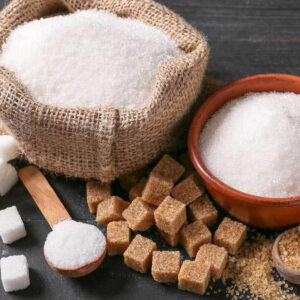When considering beet sugar vs cane sugar, some prefer one for baking while others select the alternative.
When considering beet sugar vs cane sugar, some prefer one for baking while others select the alternative.
Blog Article
Discover the Uses and Benefits of Beet Sugar Vs Cane Sugar in Your Daily Diet Regimen
Exploring the unique top qualities of beet and cane sugar discloses more than simply their sweetening abilities; it highlights their unique effects on health and cookeries. Beet sugar, understood for its subtle flavor, is usually favored in delicate desserts, whereas cane sugar, with its hint of molasses, adds richness to robust meals. Each type holds its own nutritional account and glycemic implications, inviting a deeper understanding of their roles in a balanced diet and lasting intake methods.
Origin and Production Processes of Beet and Cane Sugar

The distinct environments and dirt types needed for expanding sugar beetroots and sugarcane add to differences in their cultivation techniques and geographical distribution, influencing the business economics and sustainability of their manufacturing. beet sugar vs cane sugar.
Nutritional Contrast Between Beet Sugar and Cane Sugar
In spite of originating from various plants, beet sugar and cane sugar are nutritionally extremely similar, both largely including sucrose. Each offers regarding 4 calories per gram, equating to roughly 16 calories per tsp. Structurally, both sugars are composed of about 99.95% sucrose, with minimal amounts of various other substances like wetness and trace element, which do not significantly modify their nutritional profiles.

Ultimately, when selecting in between beet sugar and cane sugar based on dietary content alone, both offer the same benefits and disadvantages as they are basically forms of the very same molecule-- sucrose, offering fast power without other nutrients.
Effect On Health: Glycemic Index and Caloric Content
Checking out additionally into the effects of beet sugar and cane sugar on health, it is important to consider their glycemic index and calorie web content. The glycemic index (GI) of both beet and cane sugar is around 65, classifying them as high-GI foods, which can trigger quick spikes in blood sugar degrees.
Each kind of sugar includes about 4 calories per gram, making these details their calorie web content equivalent. For those keeping track of caloric consumption, particularly when handling weight or metabolic health and wellness conditions, comprehending this equivalence is crucial (beet sugar vs cane sugar). Extreme usage of any high-calorie, high-GI food can add to health and wellness concerns such as weight problems, heart disease, and insulin resistance.
Environmental and Economic Factors To Consider of Sugar Manufacturing
Beyond health effects, the production of beet and cane sugar additionally increases substantial environmental and financial problems. Sugar beet farming often tends to require cooler environments and has a lower geographical footprint contrasted to sugar cane, which flourishes in exotic regions. Both plants are intensive in terms of water usage and land line of work, potentially leading to deforestation and water deficiency. Financially, the global sugar market is highly unpredictable, affected by changes in worldwide profession plans and subsidies. Lots of nations incentivize sugar manufacturing through monetary assistance, skewing market value and impacting small farmers adversely.
In addition, the use of pesticides and fertilizers in both beet and cane sugar farming can lead to soil degradation and pollution, further impacting biodiversity and local water bodies (beet sugar vs cane sugar). The choice between cultivating sugar beet or cane commonly pivots on regional environmental conditions and economic factors, making the sustainability of sugar production an published here intricate concern
Culinary Applications and Flavor Differences
While the ecological and economic facets of sugar manufacturing are certainly considerable, the choice in between beet and cane sugar likewise affects cooking applications and flavor accounts. Beet sugar, derived from the sugar beet plant, is recognized for its incredibly neutral taste.
Cane sugar, removed from sugarcane, commonly keeps molasses traces, which present an unique splendor and depth. This mild molasses flavor boosts the complexity of baked items, sauces, and marinades. It is specifically favored in things where a caramel touch is wanted, such as a knockout post in brownies or gingerbread. The mild variation in wetness web content in between beet and cane sugar can affect the structure and uniformity of recipes, making cane sugar a preferred option for certain dishes that profit from its unique residential or commercial properties.

Final Thought
To conclude, both beet and cane sugar have unique origins and production procedures, offering comparable dietary accounts with small differences in salt web content and taste. While their effect on wellness, particularly pertaining to glycemic index and calories, is equivalent, the selection between them typically comes down to ecological, economic factors, and particular cooking requirements. Comprehending these aspects can lead customers in making informed choices that line up with their health objectives and flavor choices.
Report this page